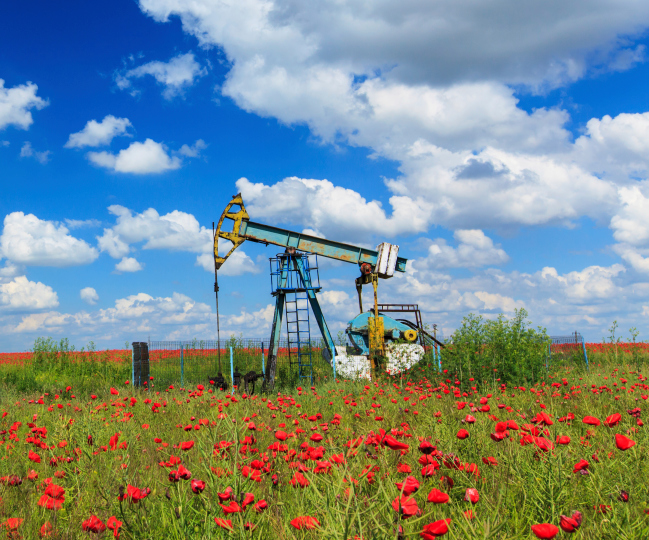A bill designed to protect small and independent oil and gas producers from unnecessary or redundant federal regulations was introduced in the U.S. House of Representatives by Rep. Jodey C. Arrington (R-TX), a member of the House Ways and Means Committee.
The “Science-Based Emissions Standards Act of 2021,” H.R. 5991, would force the Environmental Protection Agency (EPA) to slow down the process for developing emission regulations affecting small producers.
Developing Understanding before Regulation
The impetus for the bill is to postpone any rulemaking regarding emissions guidelines for the oil and gas industry until the Department of Energy (DOE) releases its federally funded study on emissions from marginal wells currently being undertaken, according to Arrington’s press release.
This would allow EPA the time to ensure the best and most current data available is considered when developing methane and other regulations that could reduce domestic energy production and raise costs, according to Arrington, rather than be forced to act based on arbitrary political deadlines imposed by the Biden administration.
The bill would “bar finalization of any replacement rule until the Secretary of Energy publishes the results of the quantification study; [r]equire EPA to provide at least 90 days for public comment from when the study is published to allow consideration by the public; and [i]nstruct the EPA to take the results into consideration in the final rule,” according to a summary of the bill released by Arrington and the bill’s co-sponsors.
“Instead of emission standards based on science provided by the Department of Energy, President Biden made a rash and arbitrary decision to appease climate alarmists departing from longstanding cost-benefit analysis which protect smaller, independent energy producers from burdensome regulation,” said Arrington, in a press release announcing the bill. “The Science-Based Emissions Standards Act of 2021 will force the EPA to slow down a rushed process and ensure the best and most current data available is considered when developing methane regulations that have a major impact on American energy.”
Regulating Marginal Wells
Marginal wells produce approximately 10 percent of the nation’s oil, with small independent producers accounting for the largest number of entities, in terms of the number of companies and geographic dispersion around the United States, who are involved in the most wells.
The DOE has been engaged for the last several years in a comprehensive study of emissions from marginal wells in the United States.
This study should be used to determine if any additional regulations on small oil and gas producers are necessary, says Jason Modglin, president of the Texas Alliance of Energy Producers.
“The Independent Petroleum Association of America and many other groups have asked the EPA multiple times to pause proposed emission regulations in order to take into account the results of the ongoing DOE study,” Modglin said. “They have not done that as of yet; instead, EPA has laid out a pretty tight comment period ending in the middle of January with the stated intent to move forward with new standards for marginal wells without taking into account this study.”
The worst thing that could happen, especially for smaller operators of marginal producing wells, is they will not have the resources or time to comply with emissions regulations, even though such emissions are likely marginal, says Mogdlin.
“If there is no available way to meet the EPA’s guidelines, and they’re going to be called upon to replace valves, to update their systems, and to impose some pretty aggressive monitoring in place,” Mogdlin said. “If it’s not grounded in a risk analysis then it is simply is an attack on domestic producers that will raise the cost of production.”
‘Do Your Homework’
Any time you raise the cost of gas in production you raise the overall cost of a barrel of oil, and ultimately the price consumers pay at the pump and on their electric bills, Modglin says.
“What we want to see is more American production to help meet America’s energy needs,” said Modglin. “Anyone who has environmental concerns should recognize that a barrel of oil produced in the United States is more efficient and results in lower emissions than oil from countries with whom we are in global competition that have lower environmental standards and enforcement than America does.
“We’ve seen that as U.S. production has declined over the last several years, it has been replaced by more countries like Russia and members of OPEC who have far higher emissions per barrel than the United States, which, overall, is bad for consumers and the environment,” Modglin said.
Federal agencies should know whether there is in fact a problem, and if so, how big it is and what it will cost to fix it, before imposing costly regulations on a vital industry, says Modglin.
“The biggest takeaway is concerning regulations is to do your homework before you turn in your assignment,” said Modglin. “This is exactly what the DOD is doing, making sure good science is put in place to see what if any actual risk marginal producing wells create.
“To the extent the DOE finds methane or other types of emissions from marginal wells impose risks, the EPA can utilize the best available science when creating its regulation to reduce emissions within in the United States,” Modglin said.
Kenneth Artz (KApublishing@gmx.com) writes from Dallas, Texas.


























